- PL
- EN
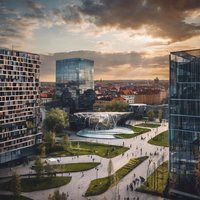
The main goal of a smart city is to optimize urban functions and promote economic growth while improving citizens' quality of life through the use of smart technologies and data analysis. The value lies in how the technology is used, not in how much of it is available.
SmartCity is a concept of future cities where modern technologies are used to manage resources, improve residents' quality of life, and increase the efficiency of various urban systems. The key to success is, on the one hand, identifying what citizens need, and on the other, having a broad perspective on how the city operates. Implementing the SmartCity concept primarily requires people who will bring this idea to life.
Polish cities, including Łódź, have numerous needs related to implementing the Smart City concept:
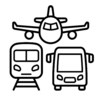
Traffic jams, underdeveloped transport infrastructure, and parking problems. Intelligent traffic management systems, expansion of public transport, city bikes, or electric vehicles can help reduce congestion and pollution.
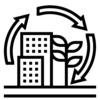
Air pollution (smog), inefficient waste management, and high energy consumption are the main challenges cities face. Solutions include air quality monitoring technologies, smart waste management systems, and improved energy efficiency in buildings.
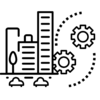
Modernization of water, sewage, energy, and telecommunications networks through IoT (Internet of Things) solutions can enhance efficiency and reduce resource loss, such as water or electricity.
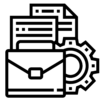
Improving access to public services by digitizing city administration is another key aspect. Platforms that allow residents to handle official matters online will speed up processes and increase transparency in administration.
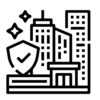
Polish cities need advanced monitoring systems that not only increase safety but also enable rapid response to threats such as fires, natural disasters, or crimes.

It is important to create tools that allow residents to actively participate in city management, such as consultation platforms, issue-reporting apps, or participatory budgeting systems.
All these needs highlight the necessity of integrating modern technologies into urban management processes to better utilize resources and enhance residents’ quality of life.
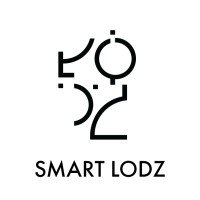
Łódź established a team responsible for implementing SmartCity solutions. These individuals possess a broad understanding of urban processes, which allows them to design projects that meet residents’ needs and engage all stakeholders involved in specific processes—ultimately achieving project goals.
The team focuses on two key areas:
Łódź supports seniors in the health sector by introducing increasingly popular telemedicine services, allowing seniors to consult doctors without leaving home. Social skills and empathy are crucial when engaging with residents. Cities exist for people, and city officials must understand their citizens’ needs to design solutions that improve life quality. Dialogue with local communities, conflict resolution, and incorporating diverse perspectives into projects are key to success.
Thanks to innovative technologies and digitized services, Łódź residents benefit from a more efficient, friendly, and accessible public administration system.
An example of a current project is the creation of a digital twin of the city’s road infrastructure. This project will allow for more effective management of a crucial part of the city used by residents every day.
Technology is a core component of SmartCity, enabling the delivery of modern and citizen-friendly services.
The department is currently implementing several innovative urban platforms to support infrastructure management and citizen services. The most important projects include:
More information about the activities of the City of Łódź Digitalization Department can be found on LinkedIn: Smart Łódź.